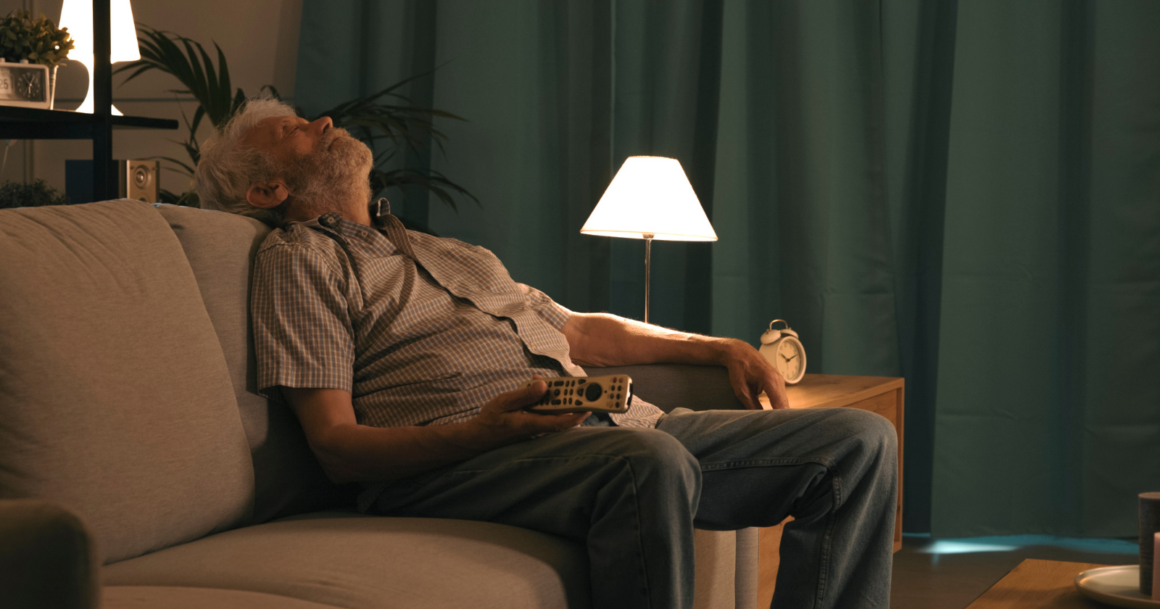- Tension: The longing for restful solitude clashes with the desire for familiar digital companionship.
- Noise: Warnings about screen time before bed oversimplify a complex interplay of comfort, habit, and personal well-being.
- Direct Message: Sometimes the very habit dismissed as unhealthy reveals a deeper adaptability that nurtures both mind and spirit.
A gentle clash emerges between the pursuit of a quiet night’s rest and the soothing glow of a television. Sweeping advice about late-night screen use can overlook the emotional reasons behind this bedtime habit. The very routine once dismissed as unhealthy may hold surprising potential for deeper comfort and self-awareness.
Why do some of us crave a familiar show playing softly in the background as we drift off?
At first glance, it may seem like a casual quirk or a simple habit. Look closer, though, and you’ll notice a longing for companionship and reassurance.
In conversations I’ve had with friends, a recurring theme surfaces: despite the endless advice to power down devices well before bedtime, many find that a softly lit screen is the perfect counterweight to a racing mind.
To learn more about our editorial approach, explore The Direct Message methodology.
The Comfort We Crave
Why do some of us need the TV on to fall asleep?
At first glance, it can seem like a mere quirk — an odd habit shaped by convenience or routine. But scratch beneath the surface, and you’ll discover an overlooked sense of security it offers.
The gentle chatter and the drifting glow from the screen function as a shield from lonely silence or anxious thoughts, creating a private bubble of calm.
I’ve observed in my research on digital well-being how media can be a double-edged sword. We’re constantly reminded that unplugging is best, yet so many rely on bedtime media to create a sense of familiarity and reassurance.
A friend in London once remarked that her night-time episodes of an old sitcom were her “personal lullaby,” bridging the gap between an overstimulating day and the kind of calm she needed to drift off.
In this piece, we’ll explore how the habit of using TV to aid sleep can reveal qualities like empathy, adaptability, and resilience.
Yes, it may appear counterintuitive.
But with the right lens, you’ll see that flicker of midnight television not as a weakness, but as a subtle testament to a person’s capacity for self-care — albeit in a modern, digital form.
The Collision of Rest and Routine
“Is it really that harmful to watch something before bed?”
Priya, a sleep-conscious colleague, recently asked me. We sat in a breakroom, discussing all those times we’d each fallen asleep halfway through a film.
“All these wellness gurus say we should switch off screens long before bedtime,” she continued, “but I find it so comforting.”
Our conversation illuminated a collision of values: one part of us clings to the modern mantra of technological caution (value one: unplug for better sleep and mental health), while another part yearns for the comforting presence of familiar media (value two: find small, soothing pockets of self-care).
Despite the wave of advice suggesting a darkened, device-free bedroom as the gold standard, there remains a quieter group of people whose paths to tranquility include the hum of a favorite show.
During these chats, I’m often reminded of the UK’s growing conversation around digital well-being. According to many public health campaigns, “screen-free hours” are ideal for mental health. But I’ve noticed that, for some individuals, screens at night provide an alternative path to inner peace.
The TV’s background noise replaces intrusive thoughts, alleviating the fear of lying awake with anxious mental chatter. Instead of picking up a phone for endless scrolling — which can worsen restlessness — a calming show can create just enough engagement to relax, but not so much as to overstimulate.
And let’s not forget: many of us simply value tradition. For years, perhaps since childhood, we might have fallen asleep to the gentle murmurs of a radio or the flickers of a night-light.
Today, the television is our updated, adult equivalent. This becomes a collision between a cultural norm—“turn everything off!”—and an individual’s emotional need for gentle distraction. At face value, it looks like a contradiction.
Yet in practice, it’s a carefully choreographed dance between two well-intentioned ideas of what it means to sleep well.
The Pitfalls of Oversimplifying Sleep Solutions
In a lunchtime conversation, another colleague, Tom, chimed in:
Tom: “I’ve read so many headlines insisting it’s terrible to watch TV before bed. Something about blue light messing with melatonin… We must be harming ourselves.”
Priya: “Yet I feel more anxious if I’m left alone in total silence. Sometimes the whirring of my thoughts is worse than any effect from the screen.”
Tom: “So who do we believe?”
This exchange highlights a classic case of oversimplification. Conventional wisdom often lumps all screen time together into one big “bad.”
We see warnings about how artificial light disrupts circadian rhythms — and those concerns are valid in certain contexts. But the reality is more nuanced.
Not all screen content is the same: a high-adrenaline action thriller is hardly comparable to a soothing nature documentary, and laptop screen brightness isn’t always on par with a softly lit television set across the room.
When analyzing media narratives around this topic, I notice a tendency to paint TV and sleep with the same broad brush—labeling it categorically detrimental.
People rarely acknowledge that certain bedtime shows might be intentionally selected for their gentle pacing or familiar content, akin to a bedtime story.
As a result, we lose sight of the deeper reason some individuals gravitate toward the hum of a TV: the comfort it provides can actually be part of a healthy coping strategy.
Yes, there are drawbacks — staying up too long or binge-watching could sabotage rest. Yet these issues emerge when we oversimplify.
We conflate “bingeing through the night” with the measured, intentional choice to play one 20-minute episode as a lullaby. We also gloss over the psychological benefits: the sense of companionship, the predictable routine that signals bedtime, and the gentle background noise that can ease an overactive mind into relaxation.
When we reduce every bedtime screen habit to a single negative label, we overlook these subtle but admirable qualities in people — like emotional intelligence (recognizing what soothes them) and practical adaptability (modifying their environment for better rest).
A Paradox at Bedtime
A late-night text conversation between two friends can sometimes sound like this:
Friend 1: “I feel guilty needing a TV show to lull me to sleep.”
Friend 2: “But you’re sleeping, aren’t you? And you’re less anxious, right?”
Friend 1: “Exactly.”
There’s a paradox here: a practice widely considered detrimental can, for some, be the very gateway to deeper rest and mental calm.
It’s paradoxical because we’ve been taught that screens and relaxation don’t mix. Yet for certain people, the screen-based wind-down is not a sign of ignoring the rules, but of finding a creative solution that offsets internal restlessness.
Once we recognize the nuanced motivations driving this behavior, we see these nightly TV viewers as neither lazy nor misguided. Instead, they may be demonstrating a kind of resourcefulness and self-awareness that fosters emotional balance.
The Direct Message
Sometimes the habit we label as unhealthy is precisely the small act of care that nurtures our wellbeing.
Navigating the Middle Ground
One might still wonder, “How can I reconcile these two competing values—prioritizing healthy sleep patterns and embracing a comforting nighttime routine that involves a screen?”
The answer lies in learning to navigate the middle ground in a way that respects the complexity of our emotional lives.
Below is a short exchange between Priya and me that captures the essence of that balance:
Me: “What if you treat TV as a tool? Not something to binge on, but to use intentionally?”
Priya: “So, set a timer, choose something familiar and calming—like an old sitcom I can recite by heart?”
Me: “Exactly. And keep the brightness and volume at a level that doesn’t jolt you awake.”
Priya: “That’s a relief. Feels good to know I don’t have to ditch the habit entirely.”
We often forget that we can customize our habits to match our needs. People who use TV to fall asleep are, in many ways, showing responsiveness to their own psychological signals.
They value practicality — they want immediate ways to settle an anxious or overactive mind — and they value comfort, seeking out soothing audio-visual “white noise.” Balancing these with the common advice to avoid bright screens at night calls for a mindful approach rather than total prohibition.
Consider these ideas for finding equilibrium:
- Set Clear Time Limits: Use a sleep timer on your TV or streaming device so it doesn’t stay on all night. This prevents you from floating through multiple episodes and messing with your sleep cycles.
- Choose Calming Content: Opt for shows or channels that aren’t adrenaline-fueled. Soothing voices, gentle narratives, or even slow-paced documentaries can help you transition to sleep.
- Mind Your Device Settings: Switch to a warm color setting or dimmer brightness to reduce eye strain. Low volume avoids startling spikes in sound—particularly important if your show cuts to loud commercials.
- Tune In to Emotional Needs: If quiet introspection creates anxiety, a mild audio presence can help you sidestep looping thoughts. Acknowledge this emotional need rather than simply branding yourself as “wrong” for preferring a screen at night.
Each of these steps integrates what we know about good sleep hygiene—keeping the environment dark and peaceful—while still accommodating the gentle presence of a calming show.
It’s an illustration of how media, when used mindfully, can support psychological well-being instead of detracting from it.
Finally, as I often note in discussions about digital well-being here in London, a little self-awareness can transform your relationship with technology.
The more you listen to the subtle signals your body and mind send, the easier it is to adjust your habits to find genuine rest.
The Path Forward
No one is claiming that leaving the TV on all night at full volume with flashing images is ideal. But a gentle half-hour of soft background viewing might just be the perfect lullaby for those with busier minds.
In acknowledging the paradox that sometimes we need the thing we’re told to avoid, we free ourselves to see the admirable qualities hiding behind a seemingly mundane habit.
And maybe, in that subtle glow, we also find a measure of self-compassion and clarity that ushers us into a peaceful night’s sleep.







